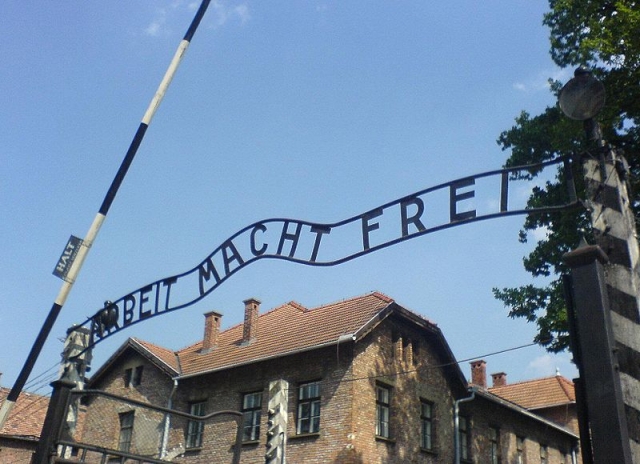Holocaust Memorial Day 2024

27 January 2024 is Holocaust Memorial Day, an annual event to recognise and remember the murder of six million Jews, as well as other victims of Nazi persecution including minority groups and political and ideological opponents. The day is also an opportunity to remember the other genocides that have been recognised since 1945. This year the day’s theme is ‘The Fragility of Freedom’, a timely idea in a world that appears to be forever plunging into darkness.
The HA is marking Holocaust Memorial Day with a number of our existing resources as usual, and a free event for teachers.
Webinar series: Commemorating the 75th anniversary of the UN Convention on Genocide
In addition, we also held a special webinar series over the winter of 2023/2024 looking at the impact of one of the important piece of legislation that emerged partly in response to the Holocaust. 9 December 2023 marks the 75th anniversary of the passing of the United Nations Convention on the Prevention and Punishment of the Crime of Genocide (also known as the UN Convention on Genocide). This groundbreaking piece of international legislation has created a legacy for lawyers, politicians and historians ever since. Our webinar series brought together some of the UK’s leading experts on genocide studies to explore the Convention and the impact it has had.
What better way to understand the fragility of freedom than by understanding how the international frameworks that exist are able to protect or defend us when those freedoms are threatened?
- Watch recordings of the webinars here (open access)
Past Holocaust Memorial Day webinars
- 2023 recorded webinar: Ordinary People
- 2022 recorded webinar: Using 'One Day' to explore the actions that helped to lead to the Holocaust and actions of genocide
General resources
- Why does the massacre of the Armenians in the First World War still get overlooked?, Paula Kitching (Virtual Branch recording)
- Anti-semitism and the Holocaust, Sarah Newman (Historian article)
- Nazi aggression: planned or improvised?, Hendrik Karsten Hogrefe (Historian article)
Secondary resources
- Webinar: Black Germans: the last forgotten victims of the Nazis? with Prof. Robbie Aitken, 26 Feb, 4-5pm - free to HA members
- Recorded webinar: Making the most out of Holocaust Memorial Day: challenges and opportunities (open access)
- Teaching controversial histories: The Holocaust (podcast, open access)
- Teaching History 153: The Holocaust and other genocides (open access)
- Integrating the historical Holocaust, Sam Ineson (Teaching History article)
- Using the concept of place to help Year 9 students to visualise the complexities of the Holocaust, Stuart Farley (Teaching History article)
- How ‘good’ are Key Stage 3 textbooks in supporting the teaching of the Holocaust?, Alex Diamond (Teaching History article)
- Helping Year 9 to engage effectively with other genocides, Andy Lawrence (Teaching History article)
Primary resources
- Webinar: Black Germans: the last forgotten victims of the Nazis? with Prof. Robbie Aitken, 26 Feb, 4-5pm - free to HA members
- Is there a place for the Holocaust in the Primary Curriculum?, Martin Winstone (Primary History article)
- ‘So why did they go into hiding?’ Anne Frank in her historical and social context, Darius Jackson (Primary History article)
- Teaching controversial history at primary school (podcast, open access)
Resources from other organisations
- BEYOND 1190: the bigger story of York's Jewish communities (University of York) - a resource to share recent scholarship about Jewish life in York in the Middle Ages. The story of the terrible massacre of York's Jewish population in 1190 is widely taught. It is a local story with much wider historical resonance. Recent scholarship has revealed evidence that both deepens and makes more nuanced our knowledge of the Jews of York and England.
- Life before the Romani Genocide - images and descriptions about life for Romani people in the 1920s and 30s.

